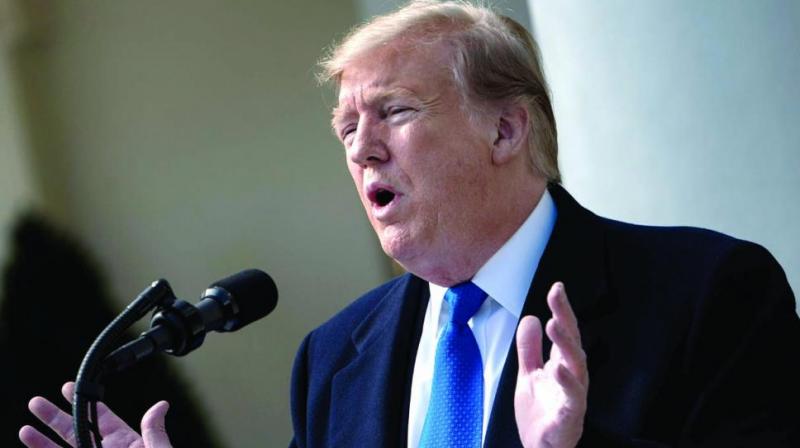China to impose tariff worth $60 billion on US goods
US President Donald Trump had also ordered the start of a process to impose new duties on another $300 billion worth of Chinese items.

Beijing: China said Monday it will raise tariffs on $60 billion worth of US goods from June 1, in retaliation for the latest round of US tariff hikes and Washington's plans to target almost all Chinese imports.
The announcement came after the latest round of US-China trade negotiations ended Friday without a deal, and after Washington increased tariffs on $200 billion worth of Chinese products.
US President Donald Trump had also ordered the start of a process to impose new duties on another $300 billion worth of Chinese items. China’s rates will target a number of American imports with tariffs rising to as high as 25 percent, according to a statement by the Tariff Policy Commission of the State Council — China’s cabinet.
“China's adjustment of tariff-adding measures is a response to US unilateralism and trade protectionism,” the statement said, adding that it hoped the US would work with China towards a “win-win agreement”.
Despite the retaliation, Beijing appeared to give time to find a resolution by setting the June 1 date.
The announcement sent Wall Street stocks plunging Monday, with losses on the tech-rich Nasdaq exceeding three percent, while the Dow Jones Industrial Average and broad-based S&P 500 both were both down 2.5 percent toward 1800 GMT.
Most observers have warned a trade war between the world's two largest economies could shatter global economic growth, and hurt demand for commodities like oil.
The Chinese response was announced soon after Trump warned Beijing not to retaliate.
“China should not retaliate-will only get worse!” the US president wrote in a series of tweets on trade.
But Beijing appeared to dig in. “China will never surrender to external pressure,” foreign ministry spokesman Geng Shuang said at a regular briefing on Monday.
In addition to tariff hikes, China could also use other measures to hit back at the US, as it imports fewer US products — which limits its ability to match tariffs dollar-for-dollar.
“China may stop purchasing US agricultural products and energy, reduce Boeing orders and restrict US service trade with China,” Hu Xijin, editor of China’s state-run Global Times, tweeted.
“Many Chinese scholars are discussing the possibility of dumping US Treasuries and how to do it specifically.”Beijing is the biggest holder of US debt, and Bloomberg News estimated last year that the Chinese state held around $1.2 trillion's worth. US Treasury Secretary Steven Mnuchin told reporters on Monday he believed China would continue to buy US debt.

